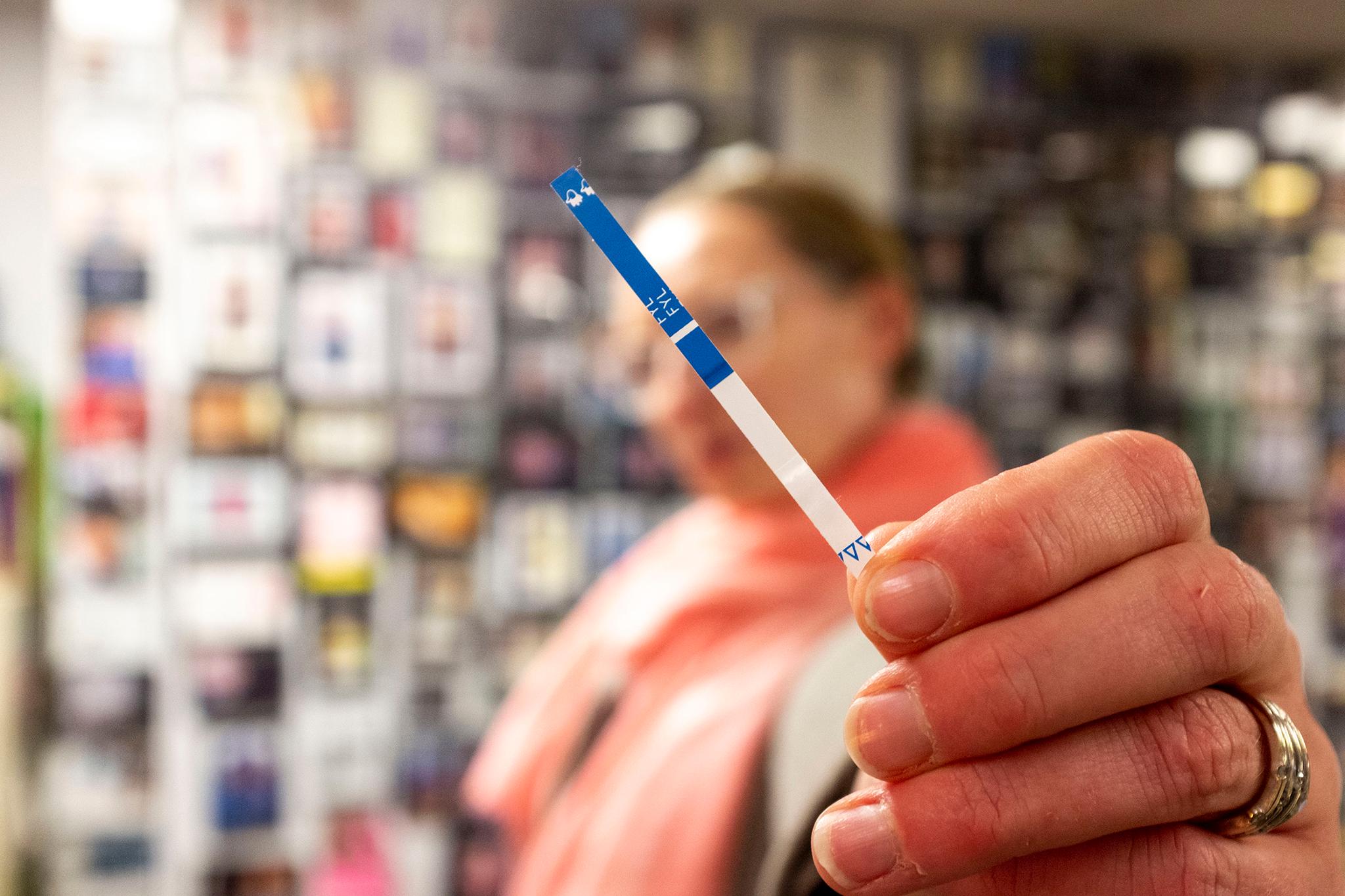Denver police and city officials on Tuesday issued a warning after finding the powerful opioid fentanyl in "brick-like form" for the first time in the city.
The department has referred the investigation over to Colorado's U.S. Attorney's Office, a spokesperson for the federal agency confirmed Wednesday. The spokesperson said they could not comment any further because of the ongoing investigation.
A release from Denver police and the Department of Public Health & Environment said they have been monitoring the presence of fentanyl -- a synthetic opioid that can be up 50 times stronger than heroin -- after officers found a significant amount during an undercover investigation. Officers initially believed they had found black-tar heroin, but later determined the substance was fentanyl.
The release did not specify when, where or how much of the drug was found.
"This newly-identified form of the drug may pose a high risk of overdose and death because it can easily be mistaken for heroin," the release said.
Fentanyl can be found in pill, capsules, rock and pure powder form. It is typically laced with other drugs like heroin, cocaine and methamphetamine.
Through September, 144 people have died from drug overdoses in Denver (including alcohol), according to figures from DDPHE. At least 26 died from overdoses involving fentanyl this year, up from 17 who died from overdoses involving the drug in 2018.
Colorado had its second-deadliest year for overdoses in 2018. Those numbers were slightly lower than in 2017, the record year for overdose deaths in the state, according to the Colorado Health Institute. The institute reported fentanyl contributed to 102 overdose deaths in 2018, an increase from 81 in 2017.
Fentanyl is not as common in Colorado or the West as in states on the East Coast, where it's led to sharp increases in fatal overdoses.
Still, fatal overdoses in the state involving the synthetic opioid have slowly increased in the past few years.
Harm Reduction Action Center Executive Director Lisa Raville said fentanyl has been on city streets for the last couple of years. It's why her organization, which provides services for drug users like a needle exchange program, has provided fentanyl testing strips since June 2018 -- so people can test for the drug. Raville wasn't surprised to see the warning -- the center has trained some 1,100 people who use drugs on how to use the strip.
"It's one of our most requested services behind syringes and naloxone," Raville said.
Generally, Raville said Denver's heroin is usually between 2 and 37 percent pure, leaving room for other things like fentanyl. She's handed out roughly 20,000 strips since last year and is on her last box. She said she's already ordered 17,000 more, a supply she thinks will last about a year.
DDPHE's substance use resource coordinator Marion Rorke said since the investigation is ongoing, they're not aware of the potency of the fentanyl found by Denver police. She said it's gradually popped up in Denver's drug supply, but the bulk amount prompted their warning.
"We want folks to be aware," Rorke said. "We know that there is some fentanyl here, we knew that before but the extent at which it was impacting our community was a lot less (known)."
Raville wants the public to know fentanyl's presence doesn't just impact heroin or opioid users. The drug can end up in methamphetamine, where it can lead to overdoses.
"It's not just an opioid issue," Raville said.
Raville and Rorke encourage people to get naloxone since the state has a standing order letting anyone get it at local pharmacies. They advise checking in with family members who may be using heroin.













